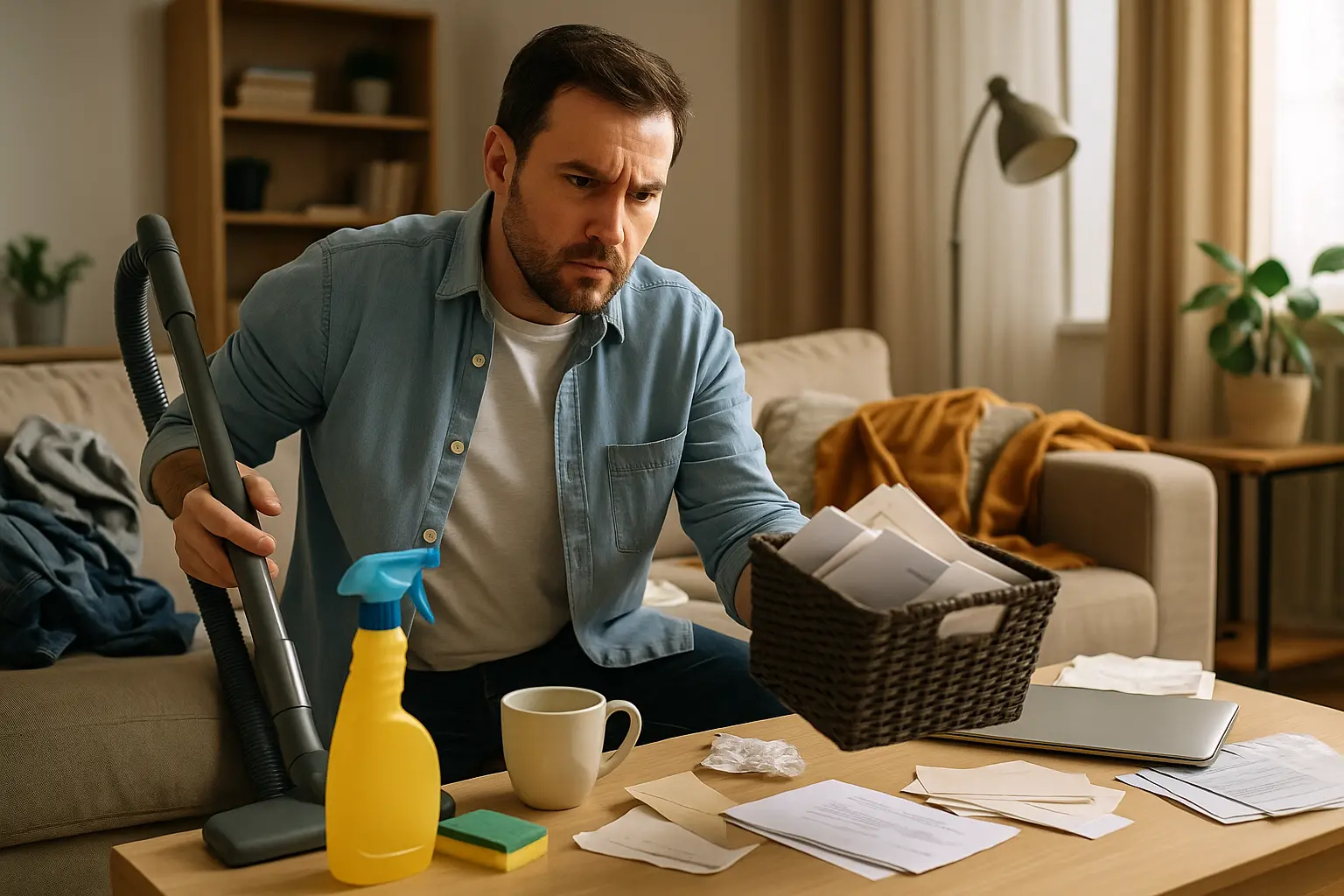A new study from the Institute for Domestic Habits has revealed that 87% of homeowners exclusively engage in household cleaning rituals in the frantic hours before guests arrive, with the remaining 13% split between “not cleaning at all” and “suffering from a Victorian-era compulsion to dust their baseboards daily.”
Researchers, who tracked the habits of over 2,000 Americans, found that most cleaning activity occurs in a 45-minute panic window typically triggered by a text message reading “On my way!” The findings shed light on what scientists are calling “performative cleanliness” — the illusion of order created by frantically shoving junk mail, unfolded laundry, and semi-perishable items into closets and unused ovens.
“Contrary to traditional assumptions, Americans are not cleaning to maintain a livable space for themselves,” said lead researcher Dr. Tanya Polk. “Instead, they are curating an elaborate lie — a Potemkin village of Swiffered coffee tables and hastily Febreezed couches — intended to persuade others that they live like normal, functioning adults.”
Homeowners interviewed for the study described elaborate systems for emergency household concealment. One respondent reported owning a specially labeled ‘Guest Drawer,’ into which she sweeps every unidentifiable item before collapsing it shut just as the doorbell rings. Another admitted he places dirty dishes in the trunk of his car during dinner parties, later removing them under cover of night.
The study also noted significant spikes in vacuum cleaner activity on Saturday evenings directly correlated with “casual hangouts” and “unplanned drop-ins.” Robot vacuums, meanwhile, appear to have been conscripted as household scapegoats. “Whenever guests compliment cleanliness, 62% of participants deflect praise by gesturing vaguely at an idle Roomba in the corner as though it deserves full credit,” the report stated.
Representatives from the American Cleaning Products Council applauded the findings. “This confirms what we’ve long suspected,” said spokesperson Mark Tillerson. “No one is buying lemon-scented disinfectant for themselves. They buy it because Karen from down the street might stop by. Frankly, we should start marketing them as ‘social reputation sprays.’”
Not everyone agrees with this assessment. Critics argue that the social pressures driving these behaviors border on pathological. “We’re essentially training people to live in squalor punctuated by bursts of hyper-cleanliness,” said sociologist Dr. Elaine Wu. “It’s a cycle not unlike dieting: a binge of filth followed by a sudden purge before brunch guests arrive.”
Several homeowners also expressed frustration that friends and relatives rarely notice the effort. “I spent three solid hours cleaning last weekend, and my cousin walked in, immediately dropped her coat on the chair I had just lint-rolled, and asked if I ever vacuum,” reported local resident Jamie Hart. “It was as if she skipped straight past the illusion I had staged for her benefit.”
The Institute plans further studies on associated phenomena, including the discovery that 71% of homeowners keep a permanently unused, pristine bathroom designated for visitors only, while the family’s actual bathroom remains “a federal disaster zone.”
At press time, researchers confirmed that one in four participants canceled social plans entirely after realizing the scale of cleaning required, opting instead to preserve friendships by never having anyone over at all.

